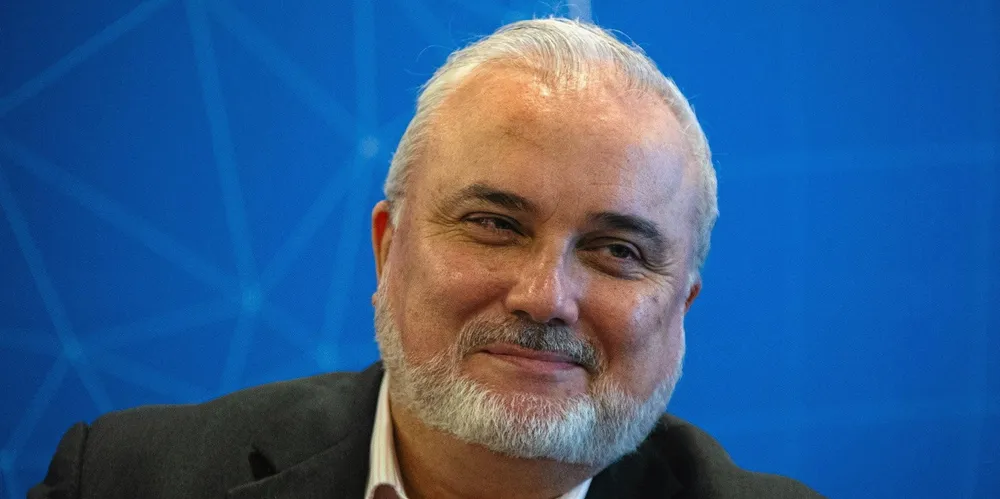Brazil's oil giant Petrobras ready for new push into renewable energy
ANALYSIS | Oil & gas group has a natural fit with offshore wind but aims to go after onshore turbine and solar assets first

Petrobras is preparing to acquire 2GW of onshore wind and solar power assets in Brazil, as analysts ponder whether the oil giant’s latest pivot toward renewable energy will turn out better than past attempts to go green.
Petrobras expects to start acquiring stakes later this year and is keen to move quickly by buying into wind and solar assets that are already operational, Prates told the news agency.
Familiar territory
Onshore wind is a sector that Prates already knows well.
More than two decades ago his consultancy firm was hired to advise the northeastern state of Rio Grande do Norte during a period of national energy shortages, leading to a pioneering plan mixing renewables with the revitalisation of mature oilfields.
In 2007 he accepted an invitation to become Rio Grande do Norte’s energy secretary, overseeing a boom in onshore wind investments that have turned the state into a big net exporter of electricity within the Brazilian power system.
One year ago, Prates was appointed to the Petrobras position by President Luiz Inacio da Silva after the former metalworkers union leader came out of the political wilderness to win a historic third term.
In earlier mandates, running from 2002 to 2010, Lula da Silva pushed Petrobras to play a leading role in fostering regional and industrial development. This translated into policies that did not always go down well with investors, such as tough local content rules for the oil industry and investments in biodiesel produced from castor oil in semi-arid hinterlands.
The biodiesel strategy was tied in with wider expectations for land reform in some of Brazil’s most impoverished regions, but small-scale rural producers stood little chance of competing on costs with powerful agricultural and biofuels groups.
The Petrobras biofuels division ended up making losses and local content policies collapsed in the wake of the infamous “Car Wash” corruption scandal.
Lessons learned?
Lula da Silva is moving more cautiously on energy policy this time and, with Prates at the company’s helm, there is a sharper focus on business rationale.
In its core business, the company is benefitting from its long learning process since discovering the pre-salt oil and gas fields, putting new reserves into production ever more efficiently with lower lifting costs, spelling huge profits.
In renewables, there are expectations for Petrobras to become a major player in offshore wind, and once a regulatory framework is in place there are plans to build up 30GW of capacity.
Prates added that Petrobras is looking forward to the approval of the framework by Brazil's Congress, which was supposed to happen by the end of 2023.
Earlier Petrobras initiatives include an MoU signed with Norway’s Equinor, which outlined plans to co-develop a possible 14.5GW of capacity from seven offshore wind farms.
Another potential partnership was penned with TotalEnergies and Casa dos Ventos.
The studies are being carried out in conjunction with pre-salt oilfield project partners Shell, TotalEnergies, China National Petroleum Corporation and China National Offshore Oil Corporation (CNOOC).
“This is another initiative aimed at developing knowledge and expertise in the offshore wind segment, which holds great potential in Brazil,” said Prates said when the initiative was unveiled.
All these plans reflect a sea-change from Brazil's previous administration under former President Jair Bolsonaro, whose government sought to sell off non-core assets and focus on deep-water exploration and production in the most productive areas.
Concerns
"My fear is that Petrobras will return to investing based on the political rate of return and not the economic rate of return," he said.
Prates said he expected the planned investments to benefit the Petrobras share price.
In the broader economy, Lula da Silva is still keen on biofuels but his administration's policy for increasing their use is much more business-orientated than the first time round.
Led by centre-right ally, Geraldo Alckmin, vice-president and minister of industry and commerce indústria e Comércio (MDIC), the administration unveiled yesteday (Monday) its new strategy for decarbonisation of the transport sector, focusing on electric vehicles and biofuels.
The strategy includes a target of getting the proportion of biofuels in the total Brazilian mix to 50%, from 21% at present.
Although focused on transport, the new strategy included financing initiatives for the domestic production of solar cells, wind turbines, electrolysers and fuel cells.
It was part of a government-backed development plan for Brazilian industry, with up to 300bn Brazilian reais ($60bn) in government-backed credit budgeted through 2026 under the package.
(Copyright)